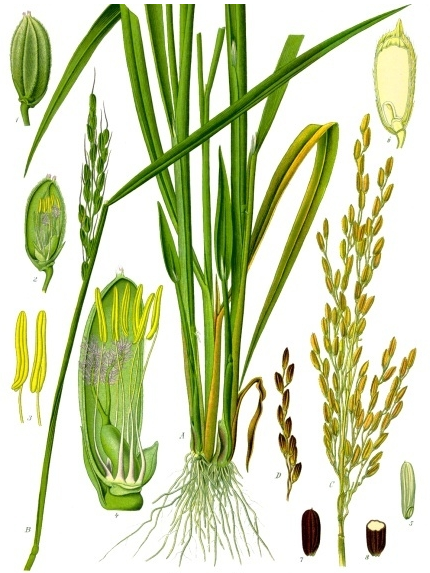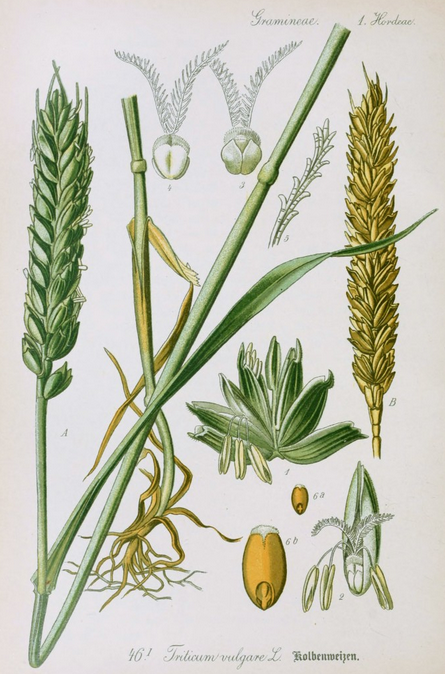You Are What You Eat? The Psychology of Rice vs. Wheat
Jun 2, 2014 by The Tasty Buzz

Oryza sativa, commonly known as Asian rice
Let's do a quick exercise. Think about your social network--your friends, family, etc.--10 or 15 people at most. Then sketch a quick drawing on a piece of paper of that network, with you and your friends represent
ed as circles connected by lines, the lines connecting people in your network who know each other. Once you're finished, look at the circle with your name in it: Is it bigger, smaller, or equal to the other circles in the network?
According to a recent article published in the journal Science, the way you draw your graph will be determined by your culture, in particular whether you come from a rice-based or wheat-based society. Americans tend to make their own circle (the one with their name in it) over a quarter-inch bigger, while in Japan people tend to make their circle smaller than the others.
Participants taking this psychological test tended to have similar answers depending on the primary grain in their diet: the rice-diet folks tended to be more relationally focused, and the wheat-diet respondents tended to answer in line with what Dr. Joseph Henrich calls "WEIRD" cultures: Western, educated, industrialized, rich and democratic.

Triticum vulgare: common wheat.
Why might this be the case? The research suggests that it might depend on the type of agricultural systems required to grow wheat vs. rice. Wheat can be grown in an individual farm plot, but rice tends to require a more communal approach to coordinate labor and irrigation.
But this isn't just an East/West difference--the team conducted their test in rice and wheat growing regions in one country: China. The respondents had the same language, history, and traditions, but grew different crops. In addition to this psychological test, the researchers looked at things like divorces and patents for new inventions. Pretty much across the board, the rice-based regions tended to fall along certain lines: more relational, communal, and conflict-averse, with a lower divorce rate...but they also had fewer individual innovations. The wheat-growing regions tended to be more individualistic, innovative, and divorce-prone, and also expressed other thinking styles similar to WEIRD cultures.
How might rice production have sparked a trend towards modernization?
This WSJ article sums up Henrich's ideas nicely:
Aliens from outer space looking at the Earth in the year 1000 would never have bet that barbarian Northern Europe would become industrialized before civilized Asia. And they would surely never have guessed that eating sandwiches instead of stir-fry might make the difference.
For more on this cool research, check out the
Science article
here, or the full Wall Street Journal article
here.







